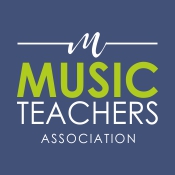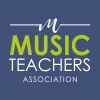13:15 – 14:30 | Session 1
Kodály approach in EYFS and KS1 in action
Sarah Marsh and Lucinda Geoghegan
Kodály inspired education is founded on three main stages of learning: Prepare (subconscious learning), Present (making conscious) and Practice (reinforcing the learning). See it all in action and enjoy practical and engaging songs, games and activities that embed an understanding of pitch, pulse and rhythm. This leads seamlessly to the development of early music literacy skills. Discover innovative ways to use art music which reinforces the learning in engaging and exciting ways.
Workshop with a Steinway artist
Hosted by Steinway, with outreach to local schools
Martin Roscoe and Keith Glazebrook
This session outlines the range of support Steinway & Sons are offering to the music education community across the UK, including areas such as national and international student recruitment. As an example of Steinway & Sons support, the session will also include a student masterclass by internationally acclaimed artist and educator Martin Roscoe, and will conclude with audience Q&A
The musician in the KS3 classroom
Simon Toyne and Liz Dunbar
This session explores a simple, logical approach to classroom lessons at KS3 which engages all students as active, thinking musicians. It’s about the teacher as the expert in the room, nurturing students’ musicianship ‘in the moment’ and the craft of formative assessment. This isn’t about what you teach, it’s about a philosophy that challenges us to think deeply about how both students and teachers function as musicians in the classroom.
Arranging for mixed ensembles
Orchestras For All – James Brady
Orchestras for All have been bringing together beginners and grade 8 players with instruments from all musical traditions since 2011. This active session draws on OFA’s experiences in creating bespoke and flexible, large-scale arrangements for our NOFA and Modulo programmes. We will focus on arranging techniques and approaches but will also consider repertoire choice, instrumentation template and the essential connection between musical content and rehearsal techniques.
Performance via music technology for KS4 and KS5 (12 places)
Led by Rob Abba, Loughborough Schools Foundation team
A practical session showing how Music Tech can be used as a performance option for non-instrumentalists at KS4 and 5 using Ableton Live, including a discussion of specifications and mark schemes.
15:00 – 16:15 | Session 2
Debate: the pros & cons of group vs individual instrumental tuition
Featuring Dr Kadiatu Kanneh-Mason
Can group instrumental tuition ever be as effective as learning 1-to-1? With cost being a barrier for many to access individual tuition, how can we level the playing field and give every pupil an equal opportunity to succeed? In this lively discussion, our panellists will be looking at the pros and cons of group vs individual music tuition, the challenges and barriers teachers face in both environments, and what best practice we as music educators can follow to support all pupils to reach their potential.
How to take student compositions from good to great
Mark Wilderspin
How do we maximise the potential of our A level pupils when it comes to their composition? How can we best coach them to turn good ideas into fully realised, satisfying pieces? This session will aim to provide some guidance on setting up a composition scheme of work to lay the foundations in year 12, and some coaching tips for your pupils once they get into the business end of year 13.
Conducting masterclass
Bjorn Bantock
“But to bring forth thrilling music from a group of singers or players, to inspire them (through one’s own personal magnetism) to excel, to train them (through one’s own musicianship) to become more aware musicians themselves, personally to feel the power of the music so deeply that the audience is lifted to new heights emotionally – or greatly persuaded, through music, to forget momentarily the dust of the earth and to spend a little time in another world – yes, this can be called conducting. A superb conductor is first of all a superb musician!”– from Elizabeth Green ‘The Modern Conductor’.
Come and share time with the String Orchestra of Loughborough Schools in this conducting masterclass, exploring new ways to refine your own awareness, perceptions and control of space, and to challenge you to think about what you can change in yourself and your communication style to show the orchestra your musical intentions.
Panel discussion: the future of Level 2 and Level 3 qualifications
Chaired by Don Gillthorpe, with panellists Steven Berryman, Marie Bessant, Dan Francis and Alistair Platt
Amidst many news headlines about the decline in numbers for GCSE and A level Music, what does the future hold for these qualifications? Vocational qualifications in Music, Music Technology and Performing Arts are gaining popularity; what alternative opportunities do these present for your pupils? In this panel discussion, MTA President, Don Gillthorpe, will interview representatives from exam boards offering Level 2 and Level 3 qualifications to find out more.
Composition via music technology for KS4 and KS5 (12 places)
Led by Rob Connolley, Loughborough Schools Foundation team
A practical session focussing on music technology composition skills through Ableton Live.


